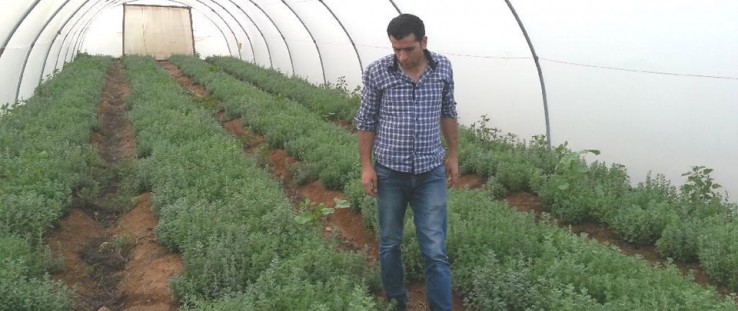 A USAID agronomist checks on plants irrigated with magnet technology in the West Bank. “We applied the new magnetic water technology to plots of oregano and tarragon with the support of USAID,” says farmer Emad Nusseibeh.
Amer Sawalha
View More Photos
A USAID agronomist checks on plants irrigated with magnet technology in the West Bank. “We applied the new magnetic water technology to plots of oregano and tarragon with the support of USAID,” says farmer Emad Nusseibeh.
Amer Sawalha
View More Photos
 A USAID agronomist checks on plants irrigated with magnet technology in the West Bank. “We applied the new magnetic water technology to plots of oregano and tarragon with the support of USAID,” says farmer Emad Nusseibeh.
Amer Sawalha
View More Photos
A USAID agronomist checks on plants irrigated with magnet technology in the West Bank. “We applied the new magnetic water technology to plots of oregano and tarragon with the support of USAID,” says farmer Emad Nusseibeh.
Amer Sawalha
View More Photos
Water is scarce in the West Bank and residents rely on shallow wells to fulfill their needs. Water from these shallow wells often has high salinity levels, and salty water is the enemy of crops like bell peppers, dates, seedless grapes, fresh herbs and beans grown by Palestinian farmers.
Not only does salty water decrease crop yields, but the salt accumulates on the soil surface. This can retard the plants’ ability to absorb nutrients. Salt water also clogs irrigation drippers.
It’s an old and recurring problem in many places on the planet. But USAID is introducing Palestinians to a new solution—magnetic technology—which breaks down salt molecules in water to make the water easier for the plants to absorb.
The technology consists of fitting electromagnets to a stainless steel pipe, connected directly to the water source, to create a magnetic field inside the pipe. Once electricity is delivered to the batteries, the water molecules passing through the pipe vibrate, causing the salt particles to break down. The now-dissolved salt no longer forms the hard crystal residue that is harmful to crops.
In remote areas with no other sources of electricity, the power is generated through two solar panels, and delivered to the magnets via an inverter module. Each complete system costs about $20,000 and can treat 21 cubic meters of water per hour. Additional parallel pipes can be connected to increase treatment capacity at a cost of approximately $15,000 each. Farmers are trained to use the devices by USAID groundwater experts.
Unlike traditional reverse osmosis technology, which uses pressure to force water through a filter, magnetic technology is considerably cheaper, decentralized and mobile, and rarely needs replacement parts. Simple to use, the system’s operating costs are minimal because it is powered by solar energy. It is also more efficient than reverse osmosis, which loses up to 25 percent of water that becomes unusable brine.
This technology, once deployed across the Jordan Valley, will allow farmers to increase their use of more than 3,500 hectares of irrigated land, affecting the lives of more than 10,000 farmers, agricultural workers and their families. Currently, these farmers export 45 percent of their yield. By applying this clean technology, they will be able to increase both the quantity and quality of their produce by more than 20 percent, increasing their financial gains by an equivalent amount. Using this technology will also save farmers the additional expenses related to irrigation networks clogged by salt build-up.
USAID designed the project in coordination with the Palestinian Authority Ministry of Agriculture in 2012 as part of USAID’s Feed the Future activities. So far, the project has been rolled out on five pilot farms that grow saline-sensitive crops. Those farmers growing vegetables and herbs using treated water are producing 20 percent more than the control plots on the same acreage.
“We applied the new technology to two dunums [a half acre] of green beans and had excellent results,” said Ali Jaber, operations manager at Jaber’s Farms in Jeftlik in the Jordan Valley. “The growth rate was more than double, and the harvest commenced two weeks earlier than usual. We are indeed eager to expand this to other units and other products. Using this technology will enable us to diversify our produce, particularly produce that requires water.”
USAID is partnering with Al Quds University to monitor results from the project. The Agency is also encouraging the local banking and microfinance sectors to design special financial products like loans to promote use of this technology across the Jordan Valley.
Rana Malki is the strategic marketing and communications manager with the USAID Compete Project.







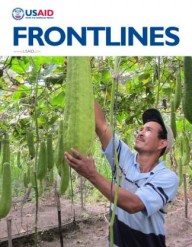

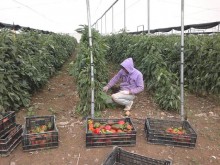
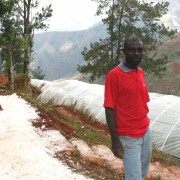
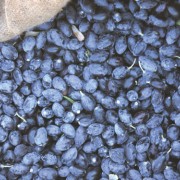
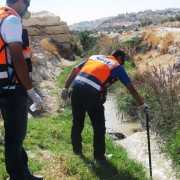
Comment
Make a general inquiry or suggest an improvement.